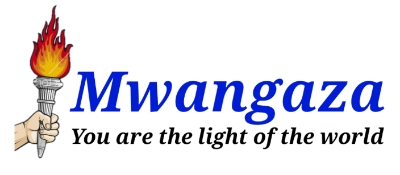By Unice Mumo
Over the past few months, I have been wondering whether or not to celebrate the International Youth Day. I have had many questions lingering in my mind, especially after reading this year’s theme ‘Transforming Education’ that highlights efforts to make education more relevant, equitable and inclusive for all youth, including efforts by the youth themselves. This is rooted in Goal 4 of the 2030 Agenda for Sustainable Development- to ensure inclusive and equitable quality education and promote lifelong learning opportunities for all, as provided for by the United Nations.
The Sustainable Development Goals talk about leaving no one behind in all aspects and therefore as a country, we need to pause and ask ourselves, are we leaving someone behind as we implement them? According to Kenya National Survey for Persons with Disabilities (2008), 4.6% of Kenyans have some form of disability. Though not recent, data available indicate that we still have a high number of children and youth with disabilities without quality education, and this is brought about by the high cost of education, inaccessible schools whose inaccessibility outrightly reject any person with disability coupled by discrimination and rejection from their own families among others.
We must celebrate measures the government has taken to ensure accessible and quality education such as being signatory to various international conventions such as adoption of the Universal Declaration of Human Rights, The 1989 United Nations Convention on the Rights and welfare of the child, Salamanca statement 1994, the Millennium Development Goals/SDGs and Education For all by 2015 among others, the new skills based curriculum, the Disability Act 2003, the Constitution, among other legislations which address discrimination, and exclusion. Unfortunately, we still have a long way to go, because implementation of the said instruments need a robust collaborative effort which is yet to actualize. Persons with disabilities need more action and not just signing of these documents. There is also a need to ensure equitable access to quality education which involve making all institutions of learning accessible, inclusive, and barrier free. Building and refurbishing special schools means that, any person with disability who wants to join any school of their choice will be hindered because accessible facilities are only available at special schools.
We should walk away from building more special schools and instead, build more of inclusive mainstream schools. This is because, the world is no longer special!
In the course of writing this article, I met a girl by the name Ivy (not her real name). She was born with a disability and here is her short story:
“I was born in a village where girl child belongs to the kitchen, a community that believes girl child should not be educated because at the end, she will get married, get children, and stay at home to nurture. And now just imagine, born with disability! It is like being born in the middle of hell. To get education itself is a dream. Luckily, I was able to complete my primary school, and though my choice for secondary school was one of the fanciest schools around, I could not manage due to its inaccessible nature. I had to enroll at a special school. It is not fun! You are treated special, then after clearing school, you meet the real world. The world is not special at all! I just wish all schools could be inclusive for the sake of all humanity!”
There are many Ivy’s outside there and it is my hope that the government, and relevant stakeholders will strive to make education more inclusive to persons with disabilities.
I will reiterate the words of Falvey, Inclusive education is about embracing all, making a commitment to do whatever it takes to provide each student in the community and each citizen in a democracy an inalienable right to belong not to be excluded. Inclusion assumes that living and learning together is a better way that benefits everyone, not just children who are labeled as having a difference.
We need more action! Walk the talk.
The writer is a Global Young Journalist Association Member











Thanks for talking on our behalf